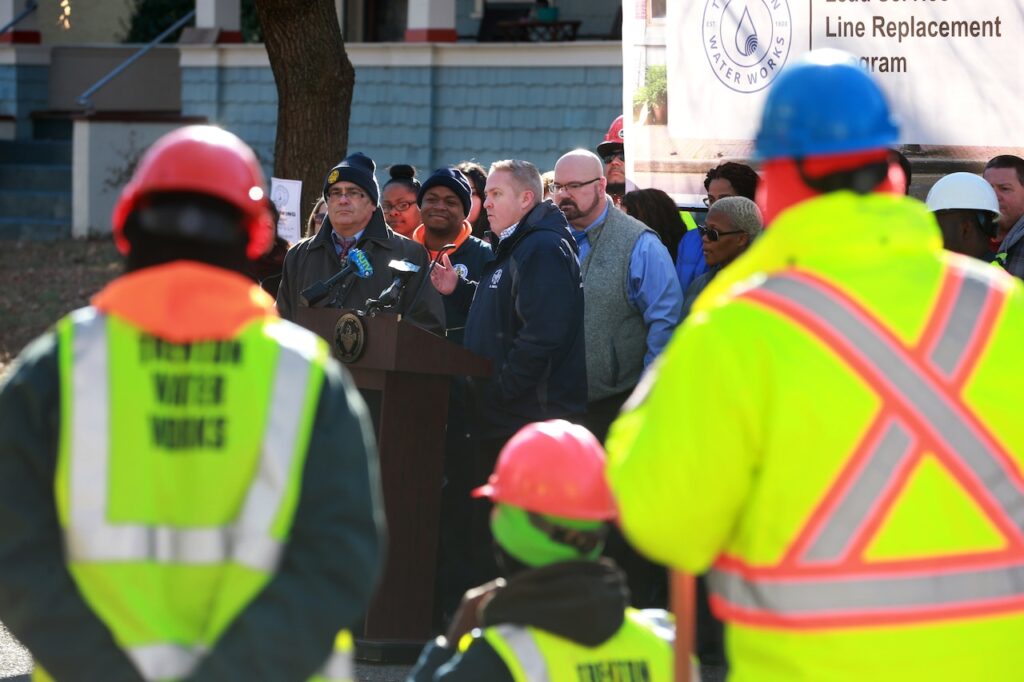New Jersey’s capital city first got wind something may have been off — in a larger matter concerning the safety of drinking water for over 200,000 people — from a citizen complaint, NJ Advance Media has learned.
Last week, Trenton Water Works informed customers that the drinking water in the city and some surrounding areas had gone largely untested for disinfection byproducts, E. Coli and other materials from October 2022 through last December.
A worker, the utility said without identifying them, was fired after falsifying related reports — later considered to be invalid during that period.
Trenton officials said after learning of the situation the city referred the matter to the prosecutor’s office and the state Department of Environmental Protection, which later looped in the state attorney general’s office.
But there’s a bit more to the story.
The water collector falsified tests from home rather than going out and actually taking samples and it was in fact a neighbor that led city investigators to this discovery, Trenton Mayor Reed Gusciora said Wednesday.
The tester’s “neighbor reported that his car was constantly parked outside (their) home,” Gusciora said.
Michael Walker, utility’s chief of communications and community outreach in Trenton, said Thursday the neighbor’s complaint first came in on Nov. 2, 2023.
“The resident called about a vehicle being parked behind their home in an alleyway. That was the complaint,” Walker said on the phone Thursday. “Once we determined who the vehicle was assigned to, a water sample collector, that’s when we launched our investigation into the work product of the sample collector.”
Walker said the person who called in the complaint did not know their neighbor was a water sample collector and had called Trenton officials solely because a blue city vehicle was parked behind their home.
The situation has raised alarms about the safety of water in Trenton, despite assurances from the city that the false reporting was isolated to one employee and that no one so far has reported health issues tied to the water.
The utility has reiterated that the water is safe to consume and customers don’t need to take any action.
“There were three testers in the field. Only one went rogue,” said Gusciora. The mayor previously said the utility has more than 100 employees.
Walker added that the now-fired water sample tester, per city protocol, had the samples in their assigned area tested by another individual. However, the state DEP did not accept the data from those backup samples because the initial tests had been fudged.
“While the DEP threw out all test results, nowhere did they demonstrate that the other (testing) — as well as the water filtration plant testing — was fraudulent,” the mayor said.
State officials are currently looking into the matter.
Trenton officials highlighted this week that they followed DEP regulations in waiting a year to inform the public about the false reports.
But that hasn’t stopped residents as well as other government leaders from pointing to concerns over some of the mired history at Trenton Water Works. Among them, Hamilton Mayor Jeff Martin who has led efforts for a state takeover of the utility.
“What this latest screw-up makes abundantly clear is that NJDEP must take away control and operations of Trenton Water Works from the city of Trenton,” Martin wrote in an online statement on Wednesday after the recent reports. “Too many promises have been broken and the health of too many is in the balance to trust the city can operate TWW. Even with the assistance of NJDEP and other professionals — failure strikes again and again.”
In the aftermath of the fired water sample collector, Gusciora said Trenton has bolstered employee supervision. That includes installing GPS tracking to fleet vehicles, spot-checking testers and requiring collectors take on-site photos of testing.
Walker described Trenton Water Works’ sample collection — which covers Trenton, Hamilton, Ewing, Lawrence and Hopewell — as effective.
“This is a comprehensive protocol that is necessary to ensure that the water is safe to drink and that the water utility is compliant with the Safe Drinking Water Act,” he said. “We have multiple pathways and data pumps to determine water quality, so if a water sample collector fails to do their job, we can still determine if water pumped throughout our service area is high quality and free of bacteria.”
Our journalism needs your support. Please subscribe today to NJ.com.
Steven Rodas may be reached at srodas@njadvancemedia.com. Follow him on Bluesky at @stevenrodas.bsky.social.

